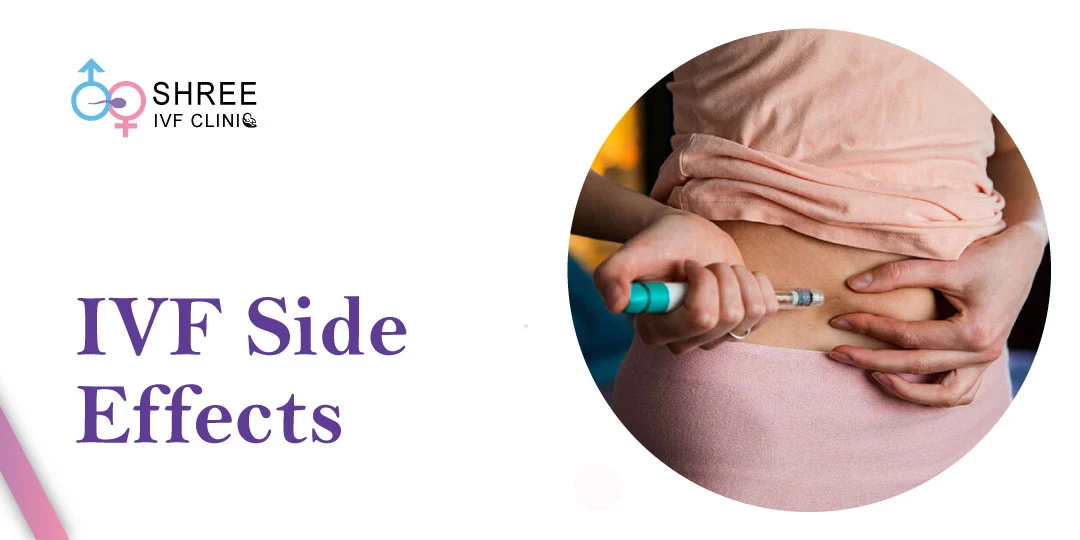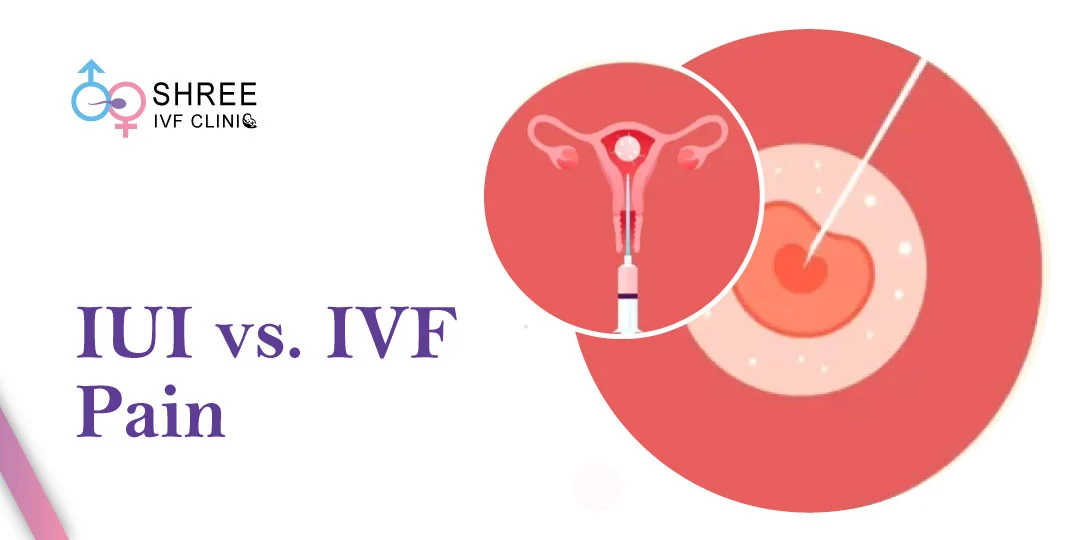Hormone Levels During IVF: What Went Wrong?
UPDATED ON 9 NOV. 2023
Picture this: you’ve embarked on the journey of in vitro fertilization (IVF) with high hopes of starting or expanding your family. You’ve followed the gynaecologist’s instructions diligently, but something went wrong.
What could have caused the unexpected outcome? In this article, we will delve into the intricacies of hormone levels during IVF and explore the possible reasons for unfavorable results.
By understanding these factors, you can gain insights into your own fertility journey and make informed decisions moving forward.

AUTHOR
Dr Jay Mehta
Scientific Director & IVF Specialist with 10+ years of experience
TREATMENT
GET IN TOUCH ON
Hormone Levels in IVF: The Basics
IVF is a complex process that relies heavily on the delicate balance of hormones in the body. Let’s take a closer look at the key hormones involved:
- Follicle-Stimulating Hormone (FSH): This hormone plays a crucial role in stimulating the ovaries to produce mature eggs. It is responsible for follicle growth and development.
- Luteinizing Hormone (LH): LH triggers ovulation, releasing the mature egg from the follicle. It also helps prepare the uterus for embryo implantation.
- Estrogen: As the follicles grow, they produce estrogen. This hormone prepares the uterine lining for implantation and supports the healthy development of the eggs.
- Progesterone: After ovulation, progesterone takes over and maintains the uterine lining, creating an ideal environment for embryo implantation and early pregnancy.
Precise hormone levels are vital for the success of an IVF cycle. Too few or too many hormones can disrupt the delicate process, leading to undesired outcomes.
The IVF Process: Step by Step
Understanding the stages of an IVF cycle can shed light on the importance of hormone monitoring and control:
- Ovarian Stimulation: To increase the chances of successful egg retrieval, the ovaries are stimulated with medication. Close monitoring of hormone levels ensures that the ovaries respond appropriately to the treatment.
- Egg Retrieval: Once the eggs have matured, they are retrieved through a minimally invasive procedure. This step is carefully timed based on hormone levels and ultrasound monitoring.
- Fertilization: In the laboratory, the retrieved eggs are fertilized with sperm to create embryos. Hormone levels continue to be monitored to assess the progress of fertilization.
- Embryo Transfer: The best-quality embryos are selected for transfer into the uterus. Hormone levels are closely monitored to ensure the uterine lining is receptive for implantation.
- Pregnancy Test: Around two weeks after embryo transfer, a pregnancy test is conducted to determine if the IVF cycle was successful.
Throughout each stage, hormone levels are carefully tracked and adjusted as necessary to optimize the chances of success.
Common Hormone-Related Issues
While IVF has helped countless individuals and couples achieve their dream of parenthood, hormone-related issues can sometimes arise. Here are some common scenarios:
- Inadequate Response: Occasionally, the ovaries may not respond adequately to the stimulation medication, resulting in a lower number of mature eggs. This can be caused by various factors, such as age, ovarian reserve, or underlying health conditions.
- Ovarian Hyperstimulation Syndrome (OHSS): In some cases, the ovaries may overrespond to the stimulation medication, leading to OHSS. This condition can cause abdominal pain, bloating, and fluid accumulation in the abdomen. Close monitoring of hormone levels helps prevent and manage OHSS.
- Hormone Imbalances: Hormone imbalances during IVF can affect the quality of eggs, the receptivity of the uterine lining, and the overall success rate. Imbalances can result from various factors, including stress, lifestyle choices, and underlying medical conditions.
Understanding these potential issues can help individuals and couples undergoing IVF navigate the process with greater awareness and preparedness.
Diagnostic Tools and Monitoring
To ensure optimal hormone levels during IVF, gynaecologists employ various diagnostic tools and monitoring techniques:
- Blood Tests: Regular blood tests are conducted to measure hormone levels, such as FSH, LH, estrogen, and progesterone. These tests provide valuable insights into the body’s response to the stimulation medication and guide adjustments to the treatment plan.
- Ultrasounds: Transvaginal ultrasounds are used to monitor follicle growth, assess the thickness of the uterine lining, and track the progress of the IVF cycle. These imaging tests provide a visual representation of the body’s hormonal response.
- Ongoing Communication: Effective communication between patients and gynaecologists is vital throughout the IVF journey. Open discussions about hormone levels and any concerns or symptoms experienced enable gynaecologists to make timely adjustments and provide necessary support.
Factors Influencing Hormone Levels
Numerous factors can influence hormone levels during IVF. Understanding these factors can help individuals take proactive steps to optimize their hormone levels:
- Age: Advanced maternal age can impact hormone levels and fertility. As women get older, the quantity and quality of eggs decrease, which can affect hormone production and response during IVF.
- Lifestyle Factors: Maintaining a healthy lifestyle can positively impact hormone levels. Regular exercise, a balanced diet, adequate sleep, and stress management techniques can contribute to hormonal balance and overall reproductive health.
- Body Mass Index (BMI): Both underweight and overweight individuals may experience hormone imbalances. Achieving a healthy BMI through proper nutrition and exercise can optimize hormone levels for IVF success.
- Underlying Medical Conditions: Certain medical conditions, such as polycystic ovary syndrome (PCOS) or thyroid disorders, can affect hormone levels. Managing these conditions with appropriate medical interventions can help regulate hormonal imbalances.
- Medications and Supplements: Some medications and supplements can interfere with hormone levels. It is important to disclose all medications and supplements to the gynecologists to ensure optimal hormone regulation during IVF treatment.
” Every individual and couple’s journey is unique, and
finding the right solutions tailored to their specific
circumstances can make all the difference “
Strategies for Hormone Level Optimization
While hormone imbalances can be challenging, there are strategies that individuals can employ to optimize their hormone levels during the IVF process:
1. Personalized Treatment Plans: Each individual’s body responds differently to IVF protocols. With Dr. Jay Mehta and a team of skilled fertility specialists, tailored treatment plans are designed to meet hormonal requirements and improve outcomes
2. Nutritional Support: A well-balanced diet rich in fruits, vegetables, whole grains, lean proteins, and healthy fats can support hormone production and balance. Consulting with a nutritionist can provide guidance on fertility-friendly foods and supplements.
3. Stress Reduction Techniques: High stress levels can negatively impact hormone production and response. Engaging in relaxation techniques such as meditation, yoga, deep breathing exercises, or therapy can help alleviate stress and promote hormonal balance.
4. Follow Medical Advice: Adhering to prescribed medication dosages, timing, and instructions is crucial for maintaining optimal hormone levels. Consistency and compliance with the treatment plan recommended by gynaecologists ensure the best chances of success.
5. Emotional Support: The IVF journey can be emotionally challenging. Seeking support from loved ones, support groups, or professional counselors can help alleviate anxiety and stress, promoting hormonal balance.
Tips for a Successful IVF Journey
Embarking on an IVF journey can feel overwhelming, but with the right approach, it can also be empowering. Here are some tips for a successful IVF journey:
- Educate Yourself: Understand the IVF process, the role of hormones, and potential challenges. Being well-informed empowers you to actively participate in decision-making alongside gynecologists.
- Open Communication: Establish a strong rapport with your fertility specialist. Effective communication allows for clear understanding, personalized care, and timely adjustments to optimize hormone levels.
- Self-Care: Prioritize self-care activities that promote physical and emotional well-being. Engage in activities you enjoy, practice self-compassion, and seek support when needed.
- Patience and Resilience: IVF can be a rollercoaster journey with ups and downs. Cultivate patience and resilience, knowing that each person’s path is unique. Stay positive and maintain hope.
Conclusion
Understanding hormone levels during IVF is crucial for patients seeking to optimize their chances of success.
By familiarizing themselves with the basics of hormone levels, potential issues, diagnostic tools, and strategies for optimization, individuals can navigate their IVF journey with confidence and informed decision-making.
Remember, every individual’s fertility journey is unique, and with the support of experienced professionals, personalized care, and a patient-centered approach, the dream of parenthood can become a reality.
AUTHOR
Dr Jay Mehta
Scientific Director & IVF Specialist with 10+ years of experience
TREATMENT
CALL US 24/7 FOR ANY HELP
GET IN TOUCH ON
Share Article on
Recommended Reading
What Are the Side Effects of IVF?
Know the side effects of IVF, from mild pain to hormonal changes, and get expert advice as you start your fertility journey.
After IVF Transfer Pregnancy Symptoms
Learn about early pregnancy signs after embryo transfer, including cramping, spotting or light bleeding, fatigue, breast tenderness, and nausea.
Which is More Painful: IUI or IVF?
Why is IVF generally more painful than IUI? Discover the expert pain management techniques that can help make your experience more comfortable





